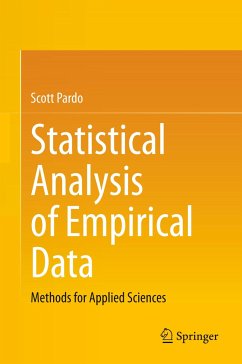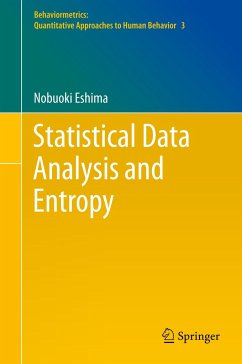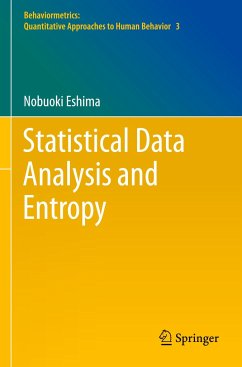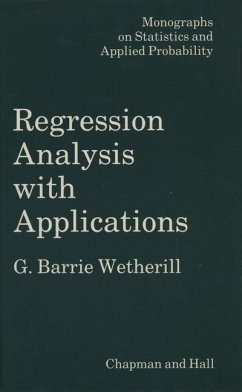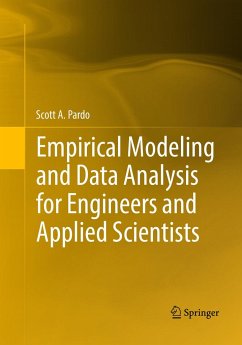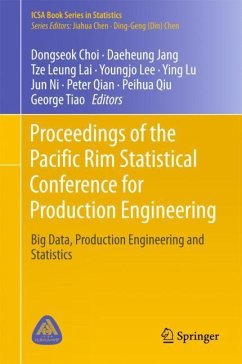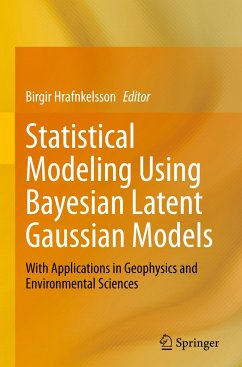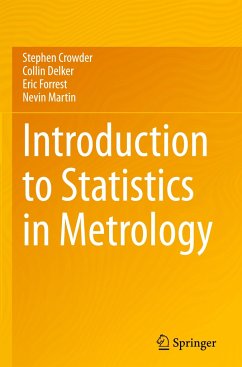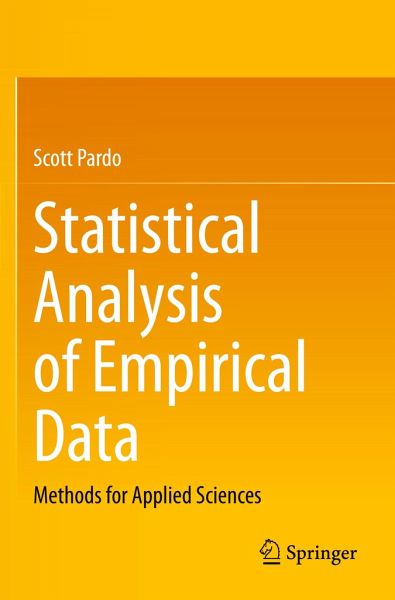
Statistical Analysis of Empirical Data
Methods for Applied Sciences
Versandkostenfrei!
Versandfertig in 6-10 Tagen
91,99 €
inkl. MwSt.
Weitere Ausgaben:

PAYBACK Punkte
46 °P sammeln!
Researchers and students who use empirical investigation in their work must go through the process of selecting statistical methods for analyses, and they are often challenged to justify these selections. This book is designed for readers with limited background in statistical methodology who seek guidance in defending their statistical decision-making in the worlds of research and practice. It is devoted to helping students and scholars find the information they need to select data analytic methods, and to speak knowledgeably about their statistical research processes. Each chapter opens with...
Researchers and students who use empirical investigation in their work must go through the process of selecting statistical methods for analyses, and they are often challenged to justify these selections. This book is designed for readers with limited background in statistical methodology who seek guidance in defending their statistical decision-making in the worlds of research and practice. It is devoted to helping students and scholars find the information they need to select data analytic methods, and to speak knowledgeably about their statistical research processes. Each chapter opens with a conundrum relating to the selection of an analysis, or to explaining the nature of an analysis. Throughout the chapter, the analysis is described, along with some guidance in justifying the choices of that particular method.
Designed to offer statistical knowledge to the non-specialist, this volume can be used in courses on research methods, or for courses on statistical applications to biological, medical, life, social, or physical sciences. It will also be useful to academic and industrial researchers in engineering and in the physical sciences who will benefit from a stronger understanding of how to analyze empirical data. The book is written for those with foundational education in calculus. However, a brief review of fundamental concepts of probability and statistics, together with a primer on some concepts in elementary calculus and matrix algebra, is included. R code and sample datasets are provided.
Designed to offer statistical knowledge to the non-specialist, this volume can be used in courses on research methods, or for courses on statistical applications to biological, medical, life, social, or physical sciences. It will also be useful to academic and industrial researchers in engineering and in the physical sciences who will benefit from a stronger understanding of how to analyze empirical data. The book is written for those with foundational education in calculus. However, a brief review of fundamental concepts of probability and statistics, together with a primer on some concepts in elementary calculus and matrix algebra, is included. R code and sample datasets are provided.





